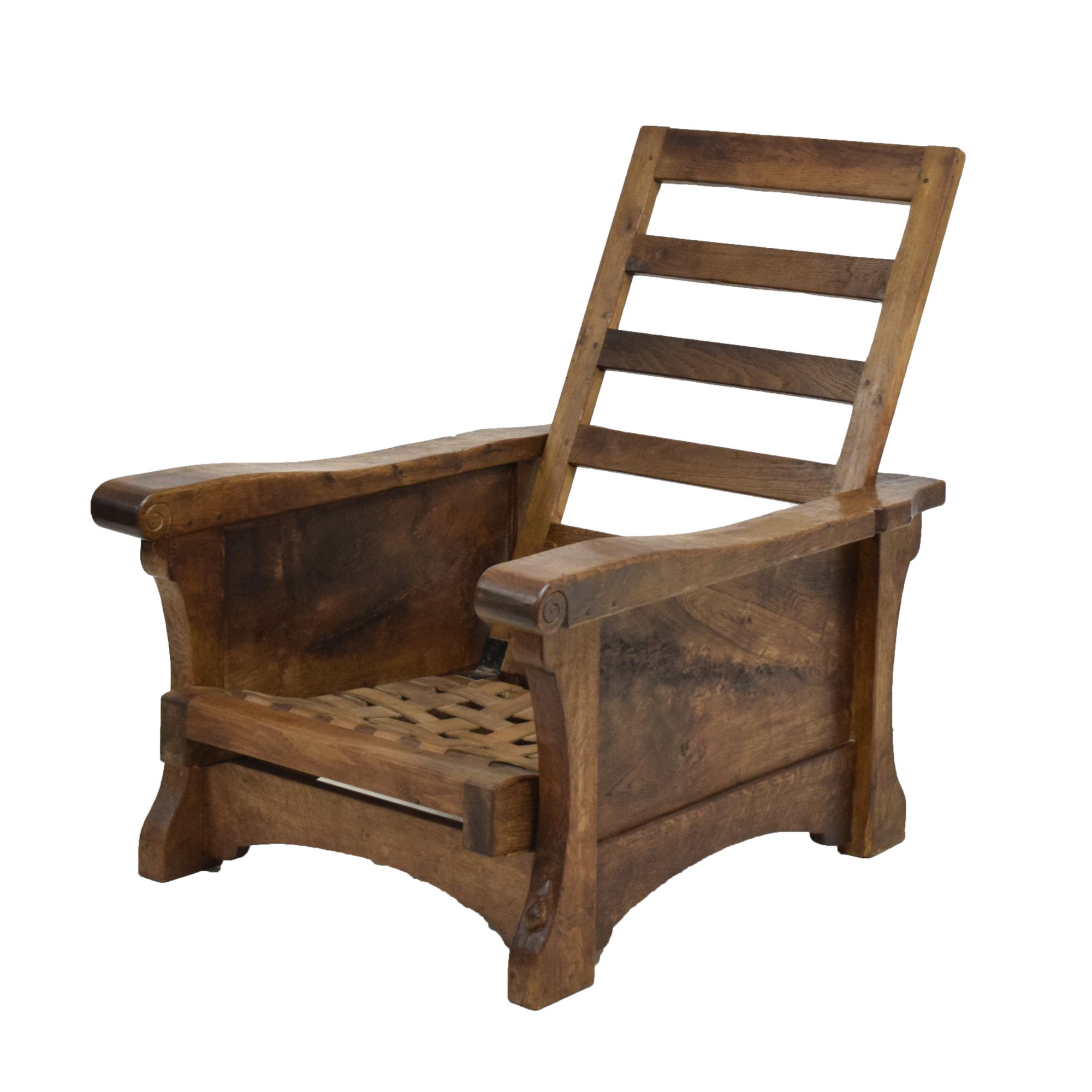

Featured in our upcoming Autumn Fine Art auction on 11 September is a group of three early works by the renowned Arts & Crafts furniture maker Robert “Mouseman” Thompson.

The Yorkshire craftsman Robert Thompson (1876-1955) is better known by a single name – ‘Mouseman’. Born in Kilburn in 1876, the son of the village's jobbing carpenter and stonemason, Thompson was inspired by the splendid medieval carvings at Ripon Cathedral to create his own oak furniture in the British vernacular tradition. The use of the adze for shaping and smoothing surfaces gave his furniture its distinctive rippled appearance. However, it was through an engaging trademark - a rodent signifying 'industry in quiet places’ first used in 1920 - that Thompson is best remembered. He later wrote:
‘The origin of the mouse as my mark was almost in the way of being an accident. I and another carver were carving a huge cornice for a screen and he happened to say something about being as poor as a church mouse. I said I will carve a mouse here and did so, and then it struck me, what a lovely trademark.’
 Featured in the sale are three pieces of Mouseman furniture, a rare reclining easy chair and a pair of single beds, with ‘opposing’ mouse signature to the headboards. These pieces, consigned by the same family, have an interesting provenance. They were presented as a wedding present to the current owner’s parents by a close relative, a member of the Rowntree family of famous York chocolate makers in 1934. They have remained in the family through two generations and this is their first appearance on the open market. It is highly unusual to find three early pieces in such remarkable condition, not purely functional furniture but part of an enduring British design tradition.
Featured in the sale are three pieces of Mouseman furniture, a rare reclining easy chair and a pair of single beds, with ‘opposing’ mouse signature to the headboards. These pieces, consigned by the same family, have an interesting provenance. They were presented as a wedding present to the current owner’s parents by a close relative, a member of the Rowntree family of famous York chocolate makers in 1934. They have remained in the family through two generations and this is their first appearance on the open market. It is highly unusual to find three early pieces in such remarkable condition, not purely functional furniture but part of an enduring British design tradition.
These three lots will be offered with pre-sale estimates starting at £600 to £800 and are lots 466 to 468 in Clevedon Salerooms Autumn Fine Art sale on Thursday September 11th.